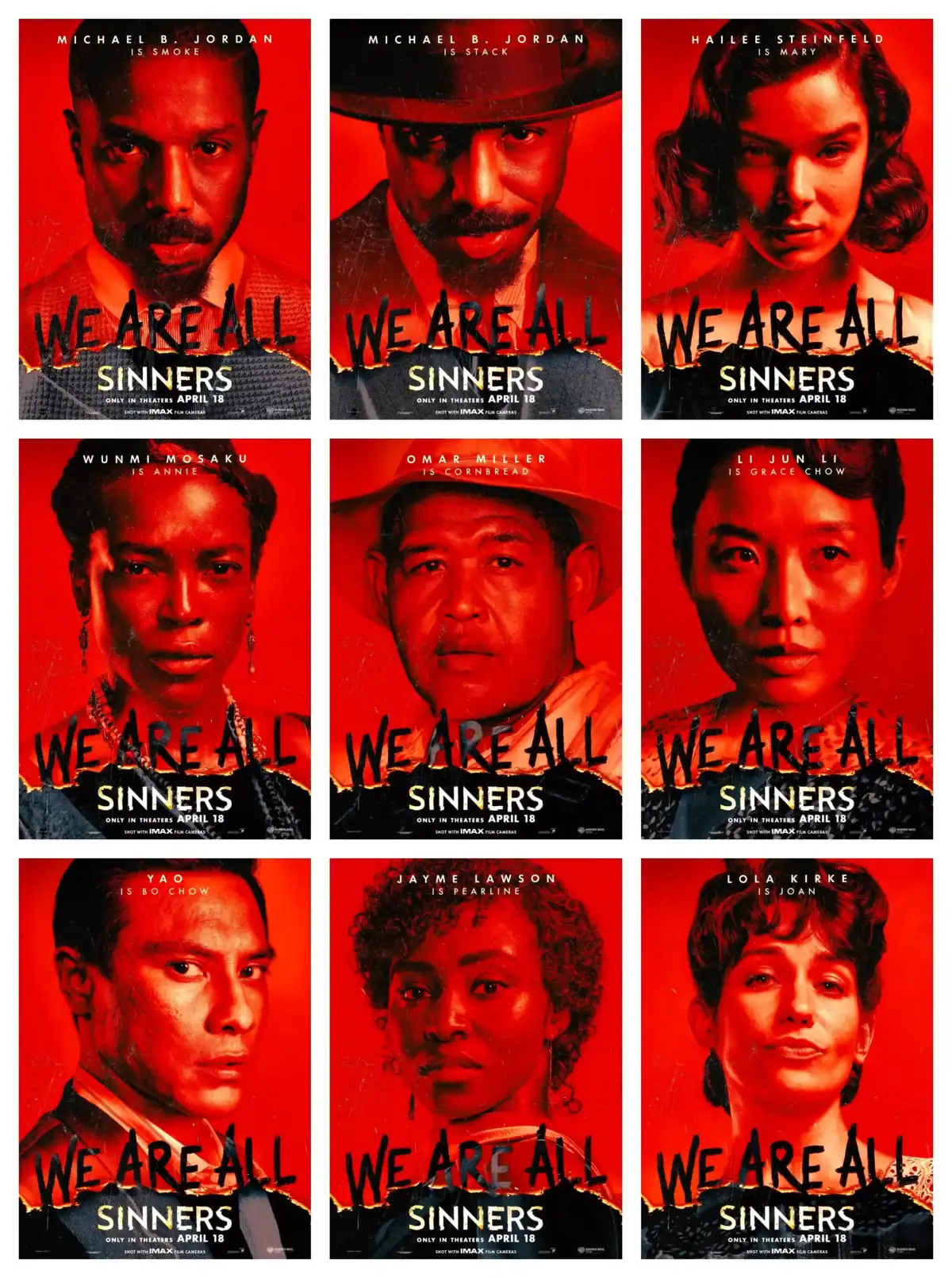By Ray’Chel Wilson, CFEI
What if a horror movie wasn’t just about fangs and fear but about legacy? About the art of saying “no”? About making sure the next generation has more than just survival?
That’s the real magic behind “Sinners.” Ryan Coogler’s genre-twisting supernatural tale is set deep in Jim Crow Mississippi. It’s got all the makings of a thriller—vampires, hauntings, stolen money, but at its core, it’s about ownership. Power. And the cost of both.
Michael B. Jordan does double duty as twins Smoke and Stack, who flip a run-down sawmill into a buzzing juke joint, funded by money lifted from none other than Al Capone. The real tension isn’t just between the living and the undead. It’s between Black ambition and the systems designed to swallow it whole.
From the jump, “Sinners” lets you know: wealth in Black hands is never just about dollar signs. It’s about danger, distrust, and the weight of a legacy that’s been interrupted far too many times. Actor and filmmaker Amir Royale put it this way on Threads, “I think almost every line of the film has some sort of payoff or callback… In the strangest way, Sammie’s purity was protected from greed the entire film without him even recognizing it.”
That line right there? That’s gospel.
Because in real life, especially in cities like Cleveland, Black prosperity has always come with a target. Redlining didn’t just erase neighborhoods, it erased futures. So when money shows up, especially unconventional money, it raises questions. Who controls it? Who benefits? Who gets burned?
And then come the vampires.
These aren’t your average bloodsuckers. They’re symbols—stand-ins for the banks that drain communities dry, for business deals wrapped in sweet talk but built on exploitation. Remmick, the Irish vampire who promises equality and immortality, is the most dangerous. His pitch sounds like freedom, but smells like assimilation. And what’s the price tag? Your soul. Your culture. Your story.
But here’s where “Sinners” flips the script: it’s not just a cautionary tale. It’s a guide.
There’s a standout scene where one of the twins teaches a little girl how to negotiate. Not just to get paid, but to stand tall and to own her value. That lesson echoes far beyond the screen. For Black communities? It’s survival 101. Know your terms. Vet your investors. Don’t confuse a lifeline with a leash.
Even behind the scenes, Coogler walked the walk. His deal to make “Sinners” included rare perks: final cut, first-dollar gross, and full rights back after 25 years. That’s not just smart, it’s revolutionary. Most directors, especially Black ones, never get that kind of control. Coogler didn’t just film empowerment. He negotiated it.
And the people are noticing.
Brian Tru, a digital creator out of Pennsylvania sharing with Word in Black, called it “a time piece… a vampire movie… a musical.” It’s all of that, and more. It’s layered with symbolism, soaked in soul, and rooted in strategy.
Of course, not everyone’s clapping. Some critics claim the film is anti-Christian. But look closer: the spiritual tension isn’t blasphemy, it’s reclamation. Hoodoo, long demonized, is presented as ancestral knowledge. The real battle? Between imposed beliefs and lived experience. Between colonized religion and cultural memory.
In the end, “Sinners” isn’t preaching. It’s provoking.
It’s asking: Who owns your story? Who profits from your labor? What deals are worth making, and which ones will cost you everything?
So here’s the takeaway for communities like Cleveland and any Black space navigating growth with caution:
- Don’t just chase the bag. Know where the bag came from.
- Teach kids to negotiate before they can even spell it.
- Keep your name on your work and the deed.
- And remember: just because the monster looks friendly doesn’t mean it ain’t hungry.
As Royale said, “Sinners” is intentional. It’s timely. And it’s layered.
So yes, it’s a vampire movie, but it’s also a warning. A workshop. A whispered sermon on strategy.
It’s still playing in theaters. Go see it. Then sit down with your crew. Talk strategy. Talk protection. Talk legacy.
Ask yourself: What would I do at the negotiation table?
Author’s Bio
Ray’Chel Wilson, a Toledo native, is the author of the internationally selling Black Wealth Freedom workbook series and CEO of ForOurLastNames, a technology turning financial trauma into financial action for first-generation wealth builders. A graduate student at Duke Divinity School, she researches stewardship, economic development, and leadership to promote human flourishing.




